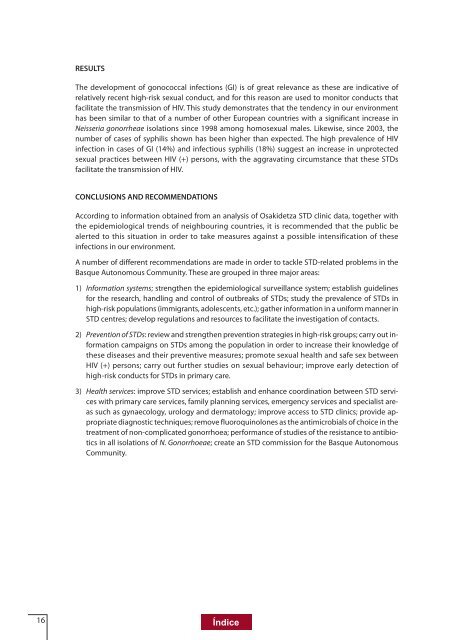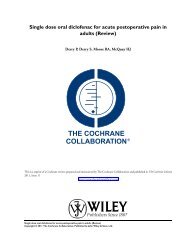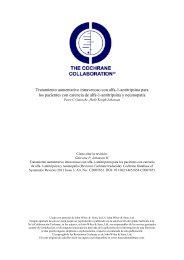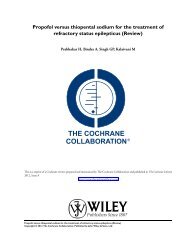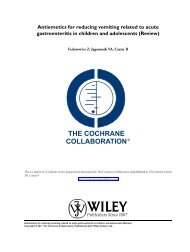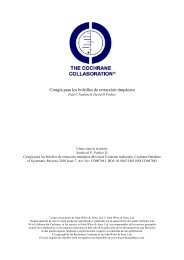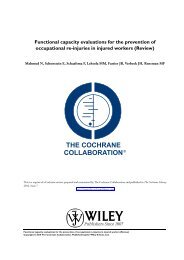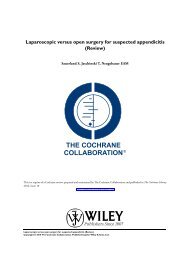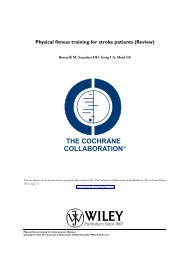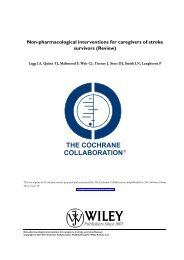LAS INFECCIONES DE TRANSMISIÃN SEXUAL. - Euskadi.net
LAS INFECCIONES DE TRANSMISIÃN SEXUAL. - Euskadi.net
LAS INFECCIONES DE TRANSMISIÃN SEXUAL. - Euskadi.net
Create successful ePaper yourself
Turn your PDF publications into a flip-book with our unique Google optimized e-Paper software.
RESULTS<br />
The development of gonococcal infections (GI) is of great relevance as these are indicative of<br />
relatively recent high-risk sexual conduct, and for this reason are used to monitor conducts that<br />
facilitate the transmission of HIV. This study demonstrates that the tendency in our environment<br />
has been similar to that of a number of other European countries with a significant increase in<br />
Neisseria gonorrheae isolations since 1998 among homosexual males. Likewise, since 2003, the<br />
number of cases of syphilis shown has been higher than expected. The high prevalence of HIV<br />
infection in cases of GI (14%) and infectious syphilis (18%) suggest an increase in unprotected<br />
sexual practices between HIV (+) persons, with the aggravating circumstance that these STDs<br />
facilitate the transmission of HIV.<br />
CONCLUSIONS AND RECOMMENDATIONS<br />
According to information obtained from an analysis of Osakidetza STD clinic data, together with<br />
the epidemiological trends of neighbouring countries, it is recommended that the public be<br />
alerted to this situation in order to take measures against a possible intensification of these<br />
infections in our environment.<br />
A number of different recommendations are made in order to tackle STD-related problems in the<br />
Basque Autonomous Community. These are grouped in three major areas:<br />
1) Information systems; strengthen the epidemiological surveillance system; establish guidelines<br />
for the research, handling and control of outbreaks of STDs; study the prevalence of STDs in<br />
high-risk populations (immigrants, adolescents, etc.); gather information in a uniform manner in<br />
STD centres; develop regulations and resources to facilitate the investigation of contacts.<br />
2) Prevention of STDs: review and strengthen prevention strategies in high-risk groups; carry out information<br />
campaigns on STDs among the population in order to increase their knowledge of<br />
these diseases and their preventive measures; promote sexual health and safe sex between<br />
HIV (+) persons; carry out further studies on sexual behaviour; improve early detection of<br />
high-risk conducts for STDs in primary care.<br />
3) Health services: improve STD services; establish and enhance coordination between STD services<br />
with primary care services, family planning services, emergency services and specialist areas<br />
such as gynaecology, urology and dermatology; improve access to STD clinics; provide appropriate<br />
diagnostic techniques; remove fluoroquinolones as the antimicrobials of choice in the<br />
treatment of non-complicated gonorrhoea; performance of studies of the resistance to antibiotics<br />
in all isolations of N. Gonorrhoeae; create an STD commission for the Basque Autonomous<br />
Community.<br />
16


